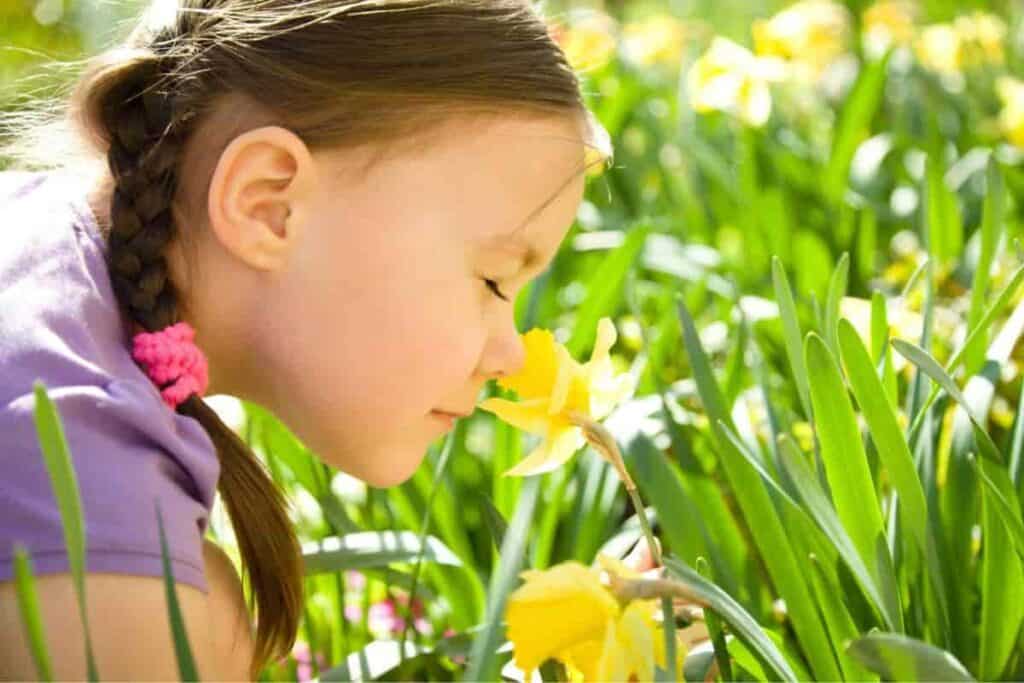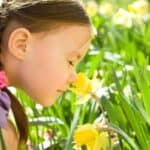A fragrance garden for the Blind, which will be the largest of its kind in the world when completed, is being planned by the Women’s Board of the Chicago Horticultural Society.
Designed by Mr. Harold Klopp of Palatine, Illinois, the plan incorporates some unusual ideas developed after studying existing gardens of this type.

Located at the Chicago Lighthouse for the Blind, it will adjoin the world’s largest training school for newly-blinded patients who are taught how to live with their handicaps. Horticultural therapy is being planned as part of the training program.
What The Entire Garden Has
The entire garden covers one and a half acres. The usually raised sections will be planted with fragrant herbs that the Blind can feel and smell. In addition, there will be large recreation areas designed for those without sight.
These include special paths for strolling without guide wires, turf areas for play, and even a barbecue section with raised grills. For fuel, fragrant woods like hickory and apple will be used.
Paths
Paths will be made of crushed granite, laid loosely so the Blind can guide their steps by the crunching stone underfoot because sound plays an important part in the life of the Blind. Running water and fountains will be used throughout the garden.
Trees With Foliage Sounds
Architect Klopp has also made provision for trees with distinctive foliage sounds. He points out that the sound of the breeze through an oak is different than through a pine. There will be many contrasting types of foliage to supply these sounds.
The Society has financed initial costs through generous gifts from various agencies, but the Women’s Board has undertaken to raise the $25,000.00 needed to bring it to completion.
Although many members have contributed ideas and funds, the individual with the greatest enthusiasm for the project is Mrs. Albert Day Farwell, a well-known authority on herbs.
Her First Experience With Herbs
Her first experience with the help herbs can give to the newly blinded occurred during World War II. While working at the Navy Hospital at Great Lakes, she visited a patient who had been put into a quiet room because of depression brought about by the loss of sight.
Presenting him with a nosegay of herbs, she pressed them under his nose. “Say,” he said, “I don’t have to see to enjoy that, do I?” When she returned the following day, she found the crushed herbs still by his bed.
That experience led her to study the effect of fragrance on the Blind and the special gardens being planted for their use.
How enthusiastic is she about the new project that all the herbs for planting the elevated area will be propagated in her greenhouse?
44659 by R. M. C.
